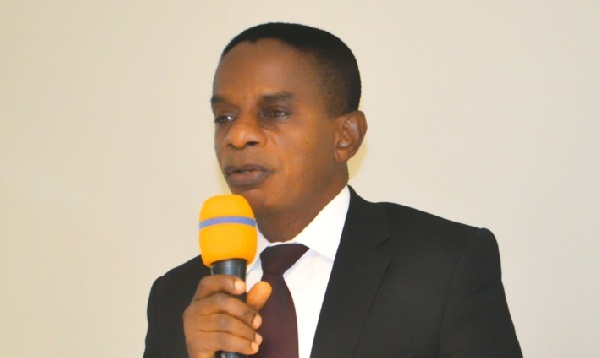A law auditing expert says the Auditor General (AG) lacks the political will to surcharge principal spending officers for supervising financial irregularities within the various State Owned Enterprises (SOEs).
Professor Samuel Antwi said although the law gives the AG the power to surcharge, he could be afraid of losing his job since his appointment is political.
He said the AG might be removed should his activities mount pressure on the government in power.
"I think it's lack of political will on the part of the Auditor General. The law has given you power, what again are you looking for?" he quizzed.
"Let's understand the recent history of the office of the Auditor General. They [A-Gs] interface a lot with politicians and powers that be.
"When the Auditor General tries to act according to some aspects of the law, reference to recent times - of course, the Auditor General is appointed by the president so if they see that you're getting too hard on them, you can lose your job.
"You have security of tenure but they [politicians] can make your life a little bit difficult as an auditor general," he explained.
"Surcharge the principal spending officer who refused to do his work," he emphasized.
Nonetheless, the AG needs to call "the bluff of the politicians" and operate according to the law, Prof Antwi added.
According to him, it is the only way the country can properly manage and account for its finances.
The expert iterated that the country needs to be serious with its financial management.
He decried government's recent pursuit of an IMF programme, saying that the financial irregularities revealed in the AG's report could have been worth more than the $3b bailout request from the IMF.
This, he said, could have helped build many hospitals and solve other pertinent issues.
The AG's report disclosed a disturbing amount of over ¢15 billion loss due to irregularities.
According to the report, outstanding debts and loans recoverable from the total loss amount to 99.37%.
There are also cases of payroll irregularities hovering around ¢11m. Amongst these, there are procurement and contract irregularities.
The country has been experiencing financial losses over the years. Significant are those from 2018 to 2022.
In 2018, it was ¢3 billion, then moved to ¢5 billion in 2019. In 2020, it shot up to ¢12 billion, increased to ¢17 billion in 2021 then finally dropping a little to ¢15 billion in the year under review, 2022.
Latest Stories
-
Western Region: NDC youth wing embarks on phase 2 of ‘retail campaign’
3 mins -
Action Chapel International holds annual Impact Convention in November
3 mins -
Jana Foundation urges young women to take up leadership roles
8 mins -
All set for Joy FM Prayer Summit for Peace 2024
19 mins -
Managing Prediabetes with the Help of a Dietitian
38 mins -
Joy FM listeners criticise Achiase Commanding Officer’s election comment
59 mins -
Legal Aid Commission employees threaten strike over poor working conditions
1 hour -
Ghana ranked 7th globally as biggest beneficiary of World Bank funding
1 hour -
IMF board to disburse $360m to Ghana in December after third review
1 hour -
Former Bono Regional NPP organiser donates 13 motorbikes to 12 constituencies
1 hour -
Securities industry: Assets under management estimated at GH¢81.7bn in quarter 3, 2024
1 hour -
Gold Fields Ghana Foundation challenges graduates to maximise benefits of community apprenticeship programme
3 hours -
GBC accuses Deputy Information Minister Sylvester Tetteh of demolishing its bungalow illegally
3 hours -
Boost for education as government commissions 80 projects
3 hours -
NAPO commissions library to honour Atta-Mills’ memory
4 hours

